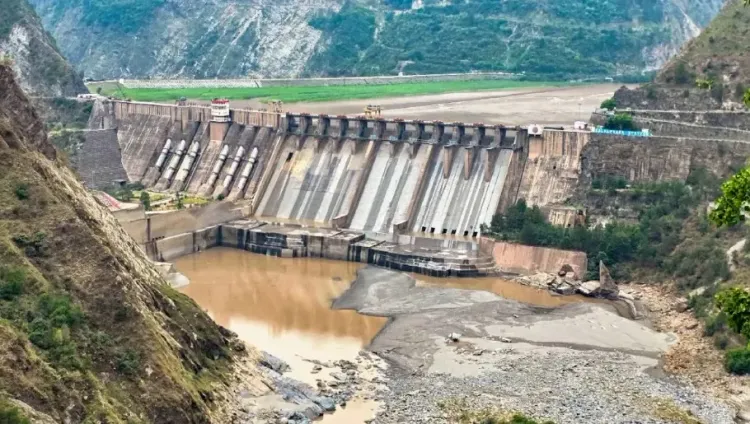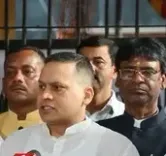Is India Delaying the Review of the Indus Waters Treaty?

Synopsis
Key Takeaways
- India's suspension of the Indus Waters Treaty reflects ongoing security concerns.
- The MoJS is firm on its stance against Pakistan.
- Discussions regarding the treaty are currently on hold.
- Conflicting views on the Tulbul Navigation project highlight regional tensions.
- The RSMS Portal enhances monitoring of reservoir capacities.
New Delhi, May 16 (NationPress) The Ministry of Jal Shakti (MoJS) is not rushing to reconsider its decision to suspend the Indus Waters Treaty (IWT), a move made by the government as part of stringent actions against Pakistan following the Pahalgam attack, according to a senior official on Friday.
The treaty was a focal point in the MoJS monthly report submitted to Cabinet Secretary T.V. Somanathan earlier this week, reflecting a status quo on the treaty's suspension.
Debashree Mukherjee, Secretary of the Department of Water Resources, River Development and Ganga Rejuvenation, stated in the monthly report that the IWT will remain suspended “until Pakistan credibly and irrevocably abjures its support for cross-border terrorism”.
The Indian government is not inclined to entertain a request from Pakistani Water Resources Secretary Syed Ali Murtaza, who proposed discussions regarding objections raised by New Delhi during previous attempts to renegotiate the IWT.
Discussions regarding the IWT coincided with conflicting opinions from Jammu and Kashmir Chief Minister Omar Abdullah and former Chief Minister Mehbooba Mufti on the revival of the Tulbul Navigation project in J&K after the treaty's suspension.
The Tulbul Navigation project, aimed at revitalizing the Wular Lake fed by the Jhelum, was initiated in 1987 but was halted in 2007 due to Pakistani objections under the IWT.
Following India's suspension of the treaty on April 23, just a day after the Pahalgam terrorist attack, Abdullah expressed the need to resume work on the project related to Wular Lake.
In a post on X, the Chief Minister questioned, “Given that the water agreement with Pakistan is currently suspended, will we be able to restart the project?”
Mufti opposed this notion, labeling Abdullah’s suggestion as “irresponsible and dangerously provocative”.
Last month, Union Minister of Jal Shakti C.R. Patil unveiled a web-based Reservoir Storage Monitoring System (RSMS) Portal.
The Central Water Commission tracks the live storage capacity of 161 key reservoirs across the country and issues a weekly bulletin every Thursday. The overall live storage capacity of these reservoirs at full reservoir level (FRL) is approximately 182.375 billion cubic meters (BCM), which constitutes around 70.74 percent of the total live storage capacity estimated for the nation.
This bulletin is disseminated to the PMO, Niti Aayog, MoJS, MOP, MOA&FW, IMD, Disaster Management Authorities, and all relevant states, and is also made available on the CWC website.









